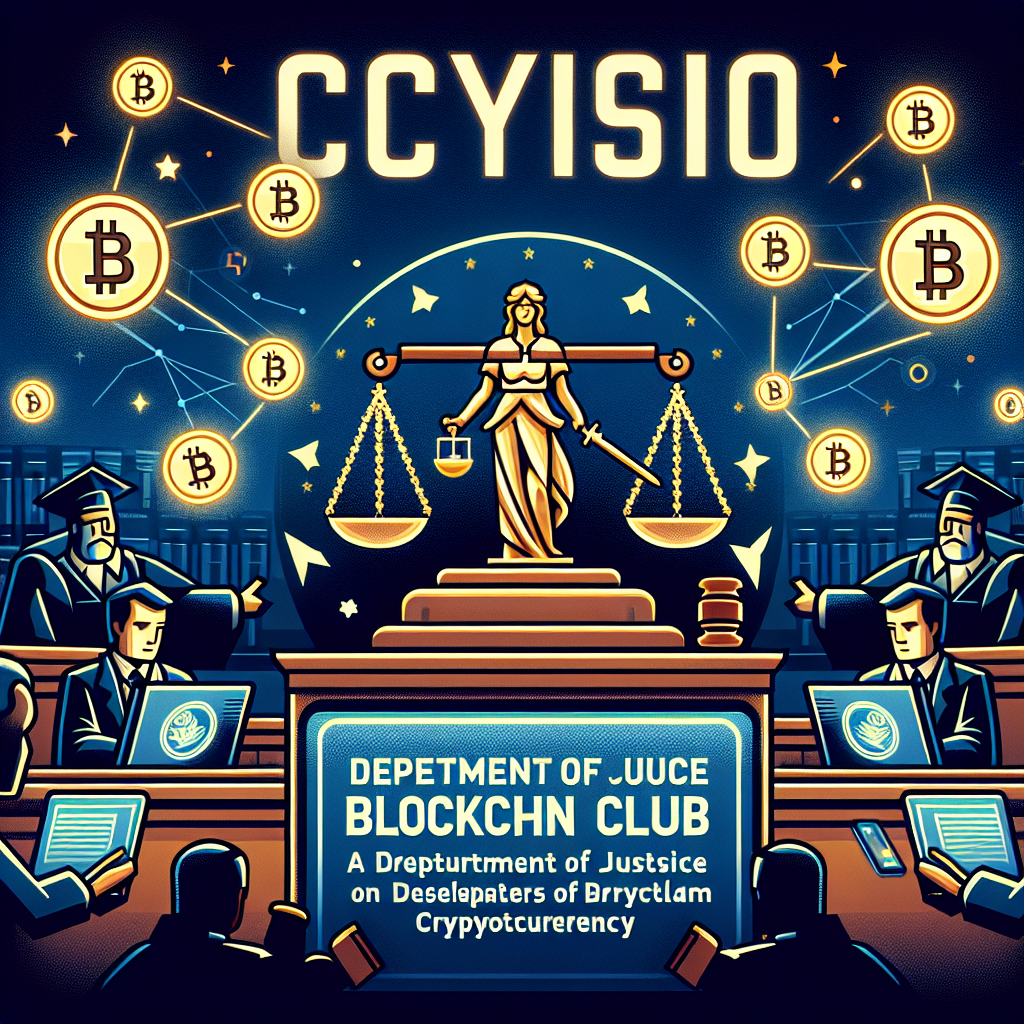DeFi
Stanford Blockchain Club Criticizes DOJ’s Legal Stance on Tornado Cash Developers

The Stanford Blockchain Club, a distinguished organization within Stanford University, has publicly expressed profound concerns regarding the United States government’s legal action against the developers of Tornado Cash, Roman Storm and Roman Semenov. The case, which hinges on the application of traditional federal money transmission laws to modern blockchain technology, has sparked a debate on the appropriateness and relevance of these laws in the context of decentralized digital systems.
The indictment of Tornado Cash’s developers has raised questions about potential overreach by the Department of Justice (DOJ) in applying outdated legal frameworks to innovative blockchain platforms. The Stanford Blockchain Club has scrutinized this legal action through their comprehensive analysis, titled “Tornado Cash and the Boundaries of Money Transmission.” This report delves into the complexities of classifying blockchain technologies under existing financial transmission laws, which were established well before the advent of decentralized finance (DeFi) and cryptocurrency platforms.
Tornado Cash, a tool designed to enhance privacy in cryptocurrency transactions by obfuscating the trail of digital funds, has been at the center of this legal controversy. The DOJ’s case argues that the developers knowingly facilitated money laundering activities by creating and maintaining this platform. However, the Stanford Blockchain Club contends that this interpretation of the law does not consider the technological nuances of blockchain systems and could set a precedent that stifles innovation in the field.
The club’s analysis emphasizes the need for a nuanced understanding of the technology and its implications, arguing that the existing legal frameworks are ill-suited to address the challenges and opportunities presented by blockchain and cryptocurrency. They suggest that the DOJ’s approach might inadvertently classify a broad range of blockchain activities as illegal, potentially hindering legitimate technological advancements and developments in the sector.
By examining the boundaries of money transmission laws, the Stanford Blockchain Club raises critical points about the necessity for legal reform that aligns with the current technological landscape. They argue that a one-size-fits-all application of old laws to new technologies could result in unintended consequences, including the suppression of technological progress and innovation.
The broader implications of this case extend beyond Tornado Cash and its developers. It highlights the ongoing struggle between regulatory bodies and blockchain innovators to find common ground in the rapidly evolving landscape of digital finance. The Stanford Blockchain Club’s position underscores the need for dialogue and collaboration between technologists and policymakers to develop a regulatory framework that supports innovation while safeguarding against potential abuses.
As the blockchain industry continues to grow, so too does the need for legal systems that can adapt to its unique characteristics. The Stanford Blockchain Club’s challenge to the DOJ’s case against Tornado Cash exemplifies the critical discourse necessary to ensure that regulatory measures keep pace with technological advancement without stifling it. The outcome of this case could have significant repercussions for the future of blockchain regulation and innovation.
The ongoing debate around Tornado Cash is a microcosm of the larger conversation about the role of privacy-enhancing technologies in society. It raises essential questions about the balance between privacy and security, innovation and regulation. As the legal proceedings progress, the blockchain community will be watching closely, aware that the decisions made could shape the future of the entire industry. The Stanford Blockchain Club’s intervention is a call to action for stakeholders to engage in thoughtful consideration of how to regulate technology in a way that respects both its potential and its risks.
-

 Press Releases2 years ago
Press Releases2 years agoGaming Technologies of the New Time!
-

 Altcoins12 months ago
Altcoins12 months agoBitcoin Declines Below $80K: deVere CEO Nigel Green Remains Bullish on Long-Term Outlook Following Strategic U.S. Bitcoin Reserve Announcement
-

 Altcoins11 months ago
Altcoins11 months agoCalls for Enhanced Discussion on Bitcoin as Brazil’s Reserve Asset: A Move Towards ‘Internet’s Gold’
-

 Bitcoin1 year ago
Bitcoin1 year agoBitcoin Surges Past $64K as SEI and POPCAT Lead Daily Crypto Gains on September 25
-

 Press Releases2 years ago
Press Releases2 years agoEvo Exchange: Redefining the Decentralized Exchange Landscape
-

 Bitcoin7 months ago
Bitcoin7 months agoGrayscale Investments Submits Draft Registration for IPO, Aiming for Public Trading in U.S.
-

 Press Releases1 year ago
Press Releases1 year agoCODE, a Newly Born Project Brings Decentralization Back to the Main Menu
-

 Bitcoin7 months ago
Bitcoin7 months agoPeter Schiff Critiques New Crypto Legislation, Claims Bitcoin (BTC) Gains are Short-Lived




